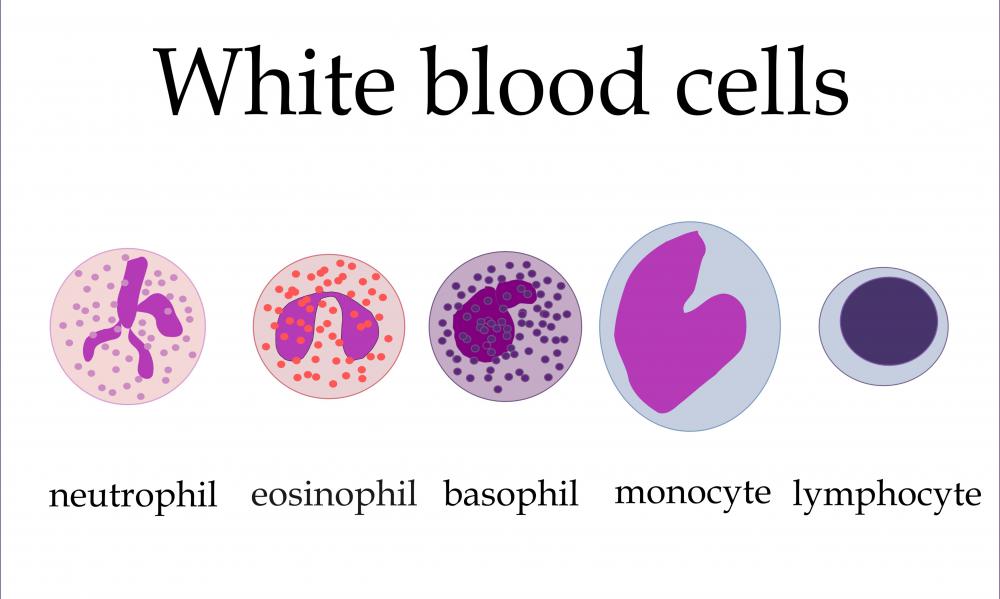At TheHealthBoard, we're committed to delivering accurate, trustworthy information. Our expert-authored content is rigorously fact-checked and sourced from credible authorities. Discover how we uphold the highest standards in providing you with reliable knowledge.
What is a Specific Immunity?
Specific immunity is the body's learned immune response to disease-causing foreign substances, also referred to as pathogens or antigens. It is also commonly called acquired immunity or adaptive immunity. When the body encounters a pathogen for the first time, it fights that substance and special immune system cells remember the pathogen and the best way to fight it. The next time the same pathogen is encountered, the immune system already knows what to do and is able to respond much more rapidly and accurately, thereby preventing infection. Specific immunity can be naturally acquired through exposure to pathogens by natural means, or artificially through vaccination.
Typical pathogens that the body will encounter can include a massive array of bacteria and viruses as well as parasites and other invasive organisms. The first exposure will typically cause illness, since the immune system has never had to fight that pathogen before. The immune system will try all possibilities to fight the invading pathogen, until it finds the most effective method. In this way, the immune system learns how to fight that specific pathogen, and then creates a memory of the pathogen and the best defense against it – acquiring specific immunity for that particular pathogen. The next time the body encounters that pathogen the immune system will already know exactly how to respond and will be able to prevent infection.

When the body acquires specific immunity to a pathogen, highly specialized cells called lymphocytes are responsible for the process. Lymphocytes enable the body to tell the difference between its own cells and invading foreign substances. They circulate throughout the body and move to certain areas when needed. Lymphocytes create antibodies, which fight the infection by attacking the pathogen in a variety of ways. The lymphocytes create specific antibodies for each pathogen to which the body is exposed.

In addition, lymphocytes enable the body to remember encounters with specific pathogens, which is crucial for specific immunity. After an encounter, some lymphocytes become memory cells that store information about that encounter until it is needed again. These memory cells can live for decades, and will immediately recognize a returning pathogen and launch the appropriate response to prevent infection. This is why a person may not become ill a second time when exposed to the same pathogen, the chicken pox virus as one example.

When the body is exposed to a pathogen by natural means, such as acquiring the flu virus by touching an infected surface, specific immunity is naturally acquired. Another way it can be naturally acquired is when antibodies are passed naturally from mother to infant child through the colostrum, which is the first milk a new mother produces. Specific immunity can also be acquired by artificial means; the most common example being immunization, in which the body is exposed to precise amounts of a pathogen in order to stimulate the immune response and acquire immunity without actually becoming ill.
AS FEATURED ON:
AS FEATURED ON:















Discuss this Article
Post your comments